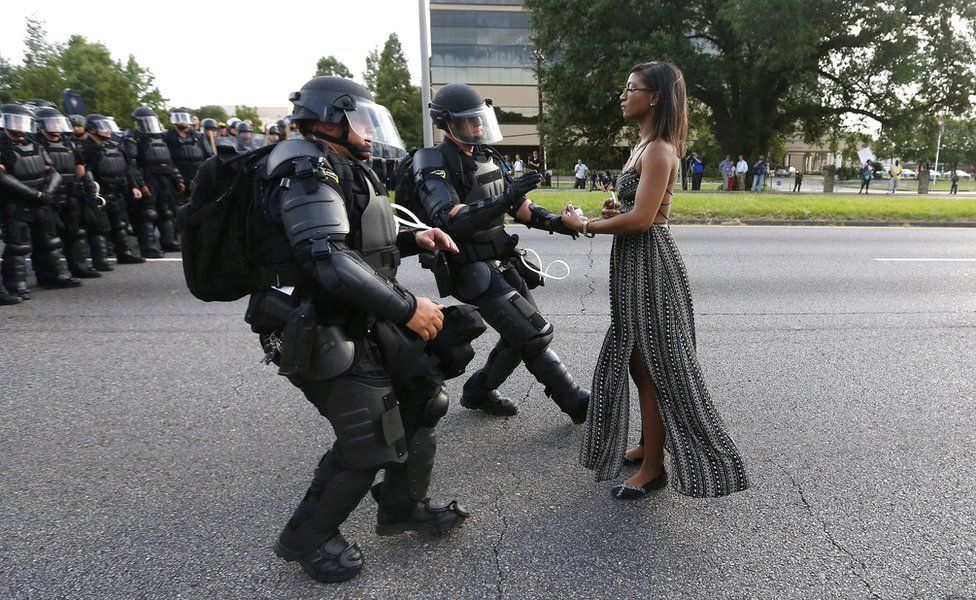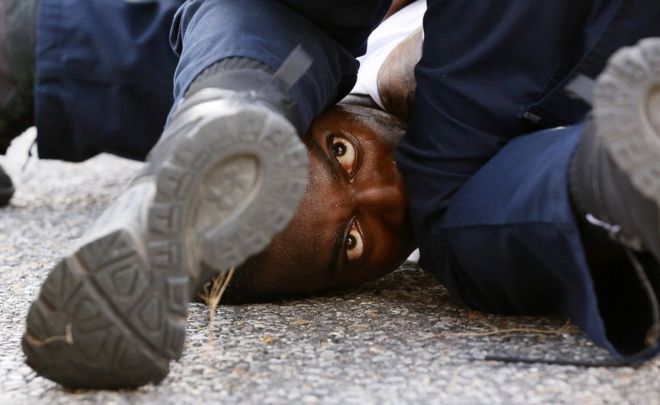
Over a year ago when Boko Haram insurgents swept through the fishing community of Baga in northern Borno State, horrified residents had limited options. The militants attacked and killed many, locals and security operatives alike.
Men, women and children who managed to flee, arrived camps for internally displaced persons with grisly tales of what they saw either during the attack, or while on the run.
One woman, Jummai Ibrahim, who braved all odds to stay alive, told PREMIUM TIMES chilling details of how she lost everything, including a 21-year-old son, and how Boko Haram insurgents forced her to watch him decapitated.
Back in Baga, Jummai and many other women that fled, lived fairly well, with good earnings from a booming fish trade near the Lake Chad. The 58-year-old was famous as a big time merchant, she said.
Now, seated at the Maiduguri IDP camp where she has lived for months, Jummai’s appearance tells nothing of that well-to-do past.
“All my life fishing is what I do,” said Jummai with some degree of pride. “It was fishing that took me and my husband to Baga and even into some parts of Chad in the past 40 years.”
She said they made money daily from fishing and food crops.
“Without being ungrateful to God, I will say we have made great fortune from our fishing business mostly on the Lake Chad waters,” she narrated. “But unfortunately, Boko Haram came in to dislodge our peace and caused us serious loss of our properties, and money.”
On the day Boko Haram insurgents struck in January 2015, Jummai said their last consignment of fish for day had been loaded to a truck at about 6 am, ready for delivery to the markets.
The cargo was not much that day at about N700, 000, she said.
When gunfire ran out, the town laid in ruin and residents like Jummai fled leaving all they toiled for.
“After loading the truck, we had to leave it in the park overnight for it to be transported the next morning. We later lost everything because everyone had to run for their dear lives when Boko Haram came in large numbers shooting their ways into every household and killing everyone they came across. All our food stuff stored in our silos were also left behind,” she narrated.
“We suffered a great deal fleeing to safety. Now that we have arrived the IDP camp in Maiduguri, we came to meet a life we never envisaged at all. It was a setback to many of us women who were once masters of their own in terms of financial resources; because back there in Doro-Baga, we do our business and make enough money to take good care of ourselves and our needs.
“It is ironical to see me here today begging to feed when I could make over N3 million in a single net-drag of fishes; the least we make in the sales of fishes could be around N500, 000. We do not know any other business except fishing and farming; and here we have nothing to do other than sitting down every day and waiting for handouts from government,” she said.
Jummai, a mother of seven children, who are mostly adults, said Boko Haram gunmen did not only invade their community, but went after them as they fled into the bushes. Many, according to her were killed in the bush and many, especially young women, were abducted by the assailants.
“I left all my belongings back in Doro-Baga when fleeing the attack by Boko Haram. I came with only the clothes I had on me,” she said. “We ran all day together with some of my children. When we got to a village called Kalwaram, I saw many people killed, and at the outskirts of the village I saw fresh corpses of two soldiers; one of the soldiers was stripped naked, his manhood was cut off his groin and forced into his mouth. I could not stand the sight of such horror, but I had to untie my wrapper and cover his body up to, at least, protect his dignity. I kept on running with only my underskirt and the blouse I had on me, until I got to a village called Minnati, where a woman saw me and out of sympathy gave me a wrapper to wear over my underskirt. That was how I got to the camp in Maiduguri, all on foot,” Jummai narrated.
Jummai said their journey out of Baga began on a bloody note as they ran into the insurgents on the outskirts of the town.
“I lost many of my relatives while fleeing from Baga. Immediately we made it to the outskirts of Baga, Boko Haram gunmen intercepted us and took away one of my daughters who was two months pregnant and her three-year-old son and 13 other ladies who were either my cousins or my husband’s younger ones that were living with us.
“One of my sons, Habibu, who was about 21 years old was killed by Boko Haram. When they saw him with me, one of the Boko Haram gunmen told me that ‘Mama this your son is old enough to join the Civilian-JTF, so he is assumed to be a potential member of the Civilian-JTF’. For that reason they dragged him to the ground in my presence and slit his throat. They wanted to force me to hold his legs while they were cutting off his neck, and I told them I could not do such thing. I attempted to close my eyes because I could not stand to see how they were killing my own son like an animal, but one of them hit me with the butt of their gun on my arm, and insisted that I must watch them as they killed my son.
“I watched him cry and calling on me to help him, when I cried out that I could not help him, then he kept on screaming that ‘mama pray for me, and forgive me if I ever offended you, pray for me’…(sobs)…that was how my child was slaughtered and beheaded,” Jummai narrated, weeping. “I have seen pains and torture from Baga to Maiduguri.”
Life in Maiduguri
Life at the IDP camp has been another tortuous phase for Jummai. She complains about how she and her surviving family now struggle to eat and get basic needs as clothing.
“Now I am left with nothing except rags,” she said, struggling a wry smile, but apparently fighting back tears.
“Last year, Borno State government came to share clothes for us and that was what we have been using since then. As you can see now, the clothes have turned to rags because of everyday use. Look at my body, look at our skins, we lack soaps to bathe and even the cheapest cream to oil our body. We do not even have washing bar to wash our clothes. It is so pathetic.
“It is even more pathetic now that I have over 20 children including some of my own that were able to make it on their own to this camp and those of neighbours that have been killed, all living with me in the same apartment here in the camp. Food that was recently distributed by the Borno state governor during this Ramadan did not get to us in our own house. We have to depend on one or two measures of rice that some good relatives brought to us.
“Just imagine the irony of life…(sobs)… me a woman of means in Baga, whom people do come to meet for help; even when the local government council was in difficulties, they do come to me for assistance which I did render without blinking an eyelid. I was a very independent woman financially. I was very famous and prominent in my community; none of our Lawans (District Head) and Bulamas (village heads) would say they don’t know me.”
On whether she would want to return to Baga to pick the pieces of their lives, Jummai said such an opportunity would be like “being offered free pilgrimage to the holy land”.
“But looking at what I passed through to get to safety here, I would rather wait here with my children until when the soldiers declare that there is no more Boko Haram,” she added cautiously.
Her immediate concern now is having an improved living condition in the camps where food and clothing will not be an issue.
“I am calling on government both at the federal and state level to come to our aid; especially in the area of feeding in the camps; of course the SEMA and NEMA normally provide food which are cooked by committee members and shared in the camp. But, sadly, most of the food cooked are not prepared in the best way that it could be consumed. That is why you see many people would rather dry the food in the sun and go out to sell them to get small amount they could use to buy something to eat. No one can eat the food here because it was poorly cooked.
“What we want is for the state government to come to the camp and give us the uncooked rice and corn flour so that we can cook them on our own, just like it did during this Ramadan. Allowing us to cook our food is better than some people coming to cook in the camp kitchen and at the end no one can eat what they prepare for us.
“I have seven children, one was killed; some that were captured by Boko Haram were able to reunite with us after soldiers rescued them. But most of them, especially the males have to leave the camp to go into the world to fend for themselves. One of my daughters who has 4 children has not seen her husband for a very long time now.”
SOURCE: Premiumtimesng







